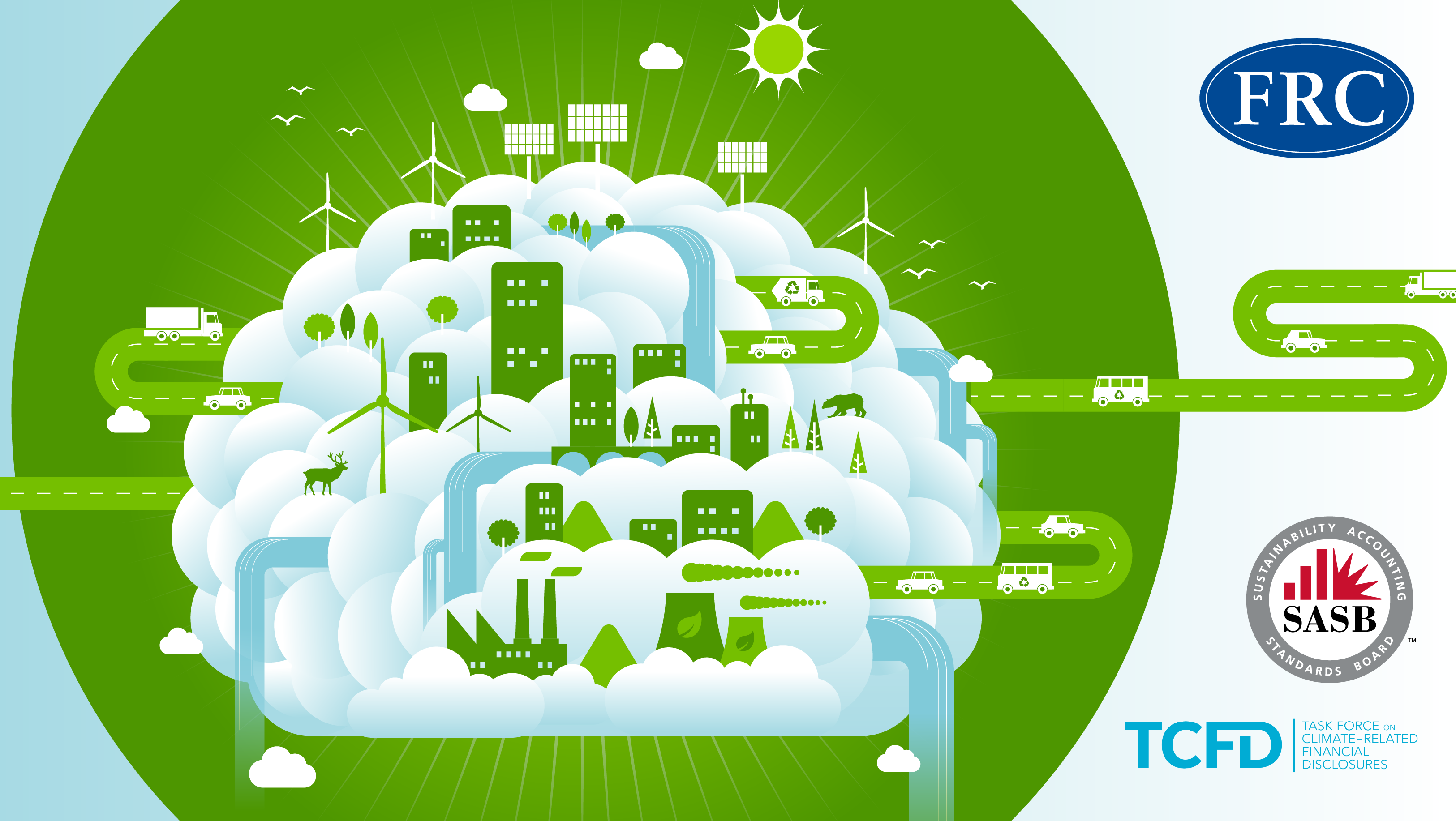
Climate change is a defining problem of our time that we all have a responsibility to prioritise.
Stay informed with regulations, insights & events by joining our mailer
In a recent publication, Climate Thematic, the FRC makes clear that it is ratcheting up the pressure on companies to address climate change ahead of mandatory compliance with the Task Force on Climate-related Financial Disclosures (TCFD) for UK-listed businesses by 2022.
Let’s take a moment to acknowledge that achieving this mandate represents no small feat: successfully integrating consideration for climate change into the corporate reporting framework amounts to an extensive overhaul of a company’s strategy, risks, KPIs, business model, governance and financial statements, and before any of this can happen, a strategy must be outlined to integrate climate-related risks and opportunities into the business itself.
It’s a big ask, especially in today’s fraught economic environment, but climate change isn’t on hiatus while the world waits for a vaccine. Climate-related disclosure is an important step for putting the corporate world on the path towards a more sustainable future, and the FRC contends that everyone can and must do better, a sentiment echoed by Chancellor Rishi Sunak in the most recent show of government’s commitment to greening the UK economy. Stakeholders are calling out instances of ‘greenwashing’ and demanding more meaningful, transparent disclosure, and investors in particular want to see the impacts of climate change reflected within the financial statements.
So what does better climate reporting look like?
In this blog, we look at why the answer to that question isn’t clear-cut and break down the FRC’s expectations for narrative reporting going forward.
The quest for an international framework
One of the biggest challenges for normalising non-financial disclosure is defining a global standard to make metrics accessible and comparable. Thus far, progress has been slow, but in July 2020, the Sustainability Accounting Standards Board (SASB) and GRI announced a collaboration, which may be a positive sign that consensus is forming across the alphabet soup of regulatory institutes currently in play.
And in November 2020, the UK became the first country in the world to make disclosure against the TCFD framework mandatory for publicly listed companies. In its report, the FRC also recommends that companies use SASB metrics relevant to their sector. While it may seem daunting to report against one, let alone two different sets of standards, in practice, TCFD and SASB are actually very complementary frameworks.
Barclays, for example, has reported against the TCFD framework since 2017 and incorporated sector-specific issues identified by SASB for the first time in its 2019 ESG Report. Acknowledging that at present SASB has a US-focused approach, Barclays nonetheless endeavoured to ‘translate the spirit’ of the framework by widening the range of its ESG reporting to include topics like the incorporation of ESG factors into credit analysis and financial inclusion and capacity building. See page 5 of the ESG report for their explanation.
We have previously published advice on the TCFD standards, which are geared towards helping companies to reflect the financial implications of climate change across four key pillars: governance; strategy; risk management; and metrics and targets. Particularly for a company that’s not quite sure where it fits within the climate change discussion, SASB has identified material topics and associated metrics across 77 different industries, making it a useful guide for sector-specific disclosure.
Navigating the FRC's expectations for narrative reporting
In its review of current reporting practices, the FRC confirms that there has indeed been an uptick in narrative reporting on climate-related issues, but the quality of those disclosures is decidedly underwhelming. There’s plenty to unpack in their consolidated review of corporate reporting, with much of the FRC’s concerns centring around transparency and clarity. Below, we’ve highlighted nine key questions to consider as teams move to align their company’s climate disclosure with the FRC’s expectations:
Getting started
- Resilience: Which parts of the business could be impacted and what protective measures have been put in place?
- Substantive: Do the topics addressed have a material impact on the business as a whole?
- Action vs. ambition: Are there details to support the actioning of stated ambitions?
In the thick of things
- Balance: Does reporting weigh both the opportunities and risks of climate change?
- Granularity: How specific are milestones, targets and metrics?
- Specificity: Can the reader deduce the likelihood, impact, timeframe and prioritisation of any scenarios presented?
Taking a step back
- Transparency: Have details about the key assumptions and methodologies underpinning disclosure been included?
- Clarity: Does the report distinguish between the impacts of its environmental commitments on the business and the impacts that climate change has on the business?
- Coherence: Is narrative reporting aligned with the realities reported in forward-looking assumptions and judgements applied in preparation of the financial statements?
Forging ahead in murky waters
Climate change is a defining problem of our time that we all have a responsibility to prioritise. Companies, boards, investors, auditors and regulators are all treading in uncharted territory, and the road to quality, standardised disclosure isn’t cut and dry. Companies need to begin incorporating climate-related disclosures as soon as possible to prepare for mandatory compliance in just a couple of short years. And most important to bear in mind is that meaningful disclosure can only be achieved if it is based on purposeful action.
Unsure of where to start, or need support raising the standards of your climate-related reporting? At Design Portfolio, we have the in-house expertise to help you navigate the complexities of climate reporting and understand the opportunities of better ESG communications.
To find out how to integrate decision‑useful climate disclosures into your reporting framework, and prepare for the future regulations on climate reporting, get in touch at: